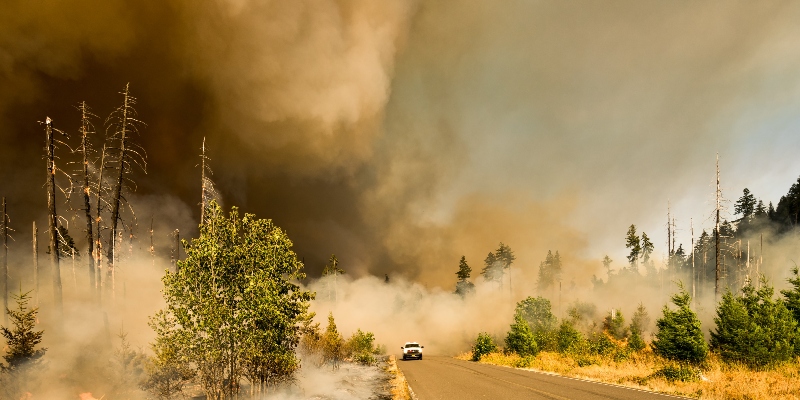## The World’s Ending? Let’s Read About It!
We spend countless hours in video games facing off against hordes of zombies, navigating post-apocalyptic wastelands, and rebuilding society from the ashes. But what if the fuel gauge for our real-world existence was running dangerously low?

Instead of just battling virtual threats, why not delve into the chillingly real anxieties surrounding the end of the world? Literary Hub’s “Nonfiction Against the End of the World” reading list serves up a potent cocktail of truth and terror, exploring the multifaceted threats we face and the complex human responses to them.

The Power of Relationships

Many apocalyptic novels focus on the bonds between characters as they face unimaginable challenges. These stories illuminate the importance of human connection in the face of adversity, reminding us that even in the bleakest of circumstances, our relationships provide strength, solace, and a sense of purpose. Take, for example, the novel “Station Eleven” by Emily St. John Mandel. The story follows a group of actors and musicians who travel through a post-pandemic world, performing Shakespeare to small communities. The characters’ relationships with each other become their lifeline, providing them with a sense of belonging, creativity, and hope in a shattered world.
Gamestanza readers, who are often drawn to narratives that explore complex human emotions and interactions, can resonate with this theme. Games like “The Last of Us” and “A Plague Tale: Innocence” demonstrate the power of familial and platonic bonds in survival situations, showcasing how love, loyalty, and trust can fuel resilience even in the most harrowing circumstances.

Redefining Morality
When traditional structures of society collapse, what moral compass remains? Apocalyptic narratives often grapple with this question, exploring how characters navigate ethical dilemmas in a world devoid of rules. In Cormac McCarthy’s “The Road,” a father and son journey across a desolate landscape, struggling to survive while facing constant threats from both the environment and other desperate humans. The novel forces readers to confront the nature of good and evil, questioning whether morality is absolute or relative in the face of extreme circumstances.
Gamestanza’s audience, known for its thoughtful engagement with complex themes, will find these moral ambiguities particularly compelling. Games like “Fallout” and “The Witcher 3: Wild Hunt” present players with challenging choices that often blur the lines between right and wrong, prompting them to consider the consequences of their actions in a world where survival often comes at a cost.

The Search for Meaning
In the face of utter destruction, what does it mean to find purpose and meaning? Apocalyptic stories explore the enduring human spirit, even in the bleakest of circumstances. Kazuo Ishiguro’s “Never Let Me Go” depicts a dystopian society where clones are created to be organ donors. The novel follows the lives of these clones as they grapple with their predetermined fate, searching for meaning and connection in a world that has dehumanized them.
Gamestanza readers who appreciate thought-provoking narratives that explore existential questions will find “Never Let Me Go” and similar games like “BioShock” and “Papers, Please” deeply impactful. These stories challenge us to consider the nature of humanity, the weight of our choices, and the possibility of finding meaning even in the face of overwhelming despair.

Building a Better (or at Least More Interesting) Post-Apocalypse
Apocalyptic fiction offers more than just thrilling escapism; it provides a unique lens through which to examine our own world and imagine alternative futures. By exploring the potential consequences of social, environmental, and technological collapse, these stories challenge us to consider the kind of world we want to create.
Lessons from the Literary Landscape
The diverse range of post-apocalyptic narratives offers valuable insights into the human condition. We see societies rebuild from the ashes, embracing innovation while grappling with the consequences of their past mistakes. In Margaret Atwood’s “The Handmaid’s Tale,” for example, we witness a totalitarian regime that emerges from the ashes of a collapsed society, highlighting the dangers of unchecked power and the importance of safeguarding individual liberties.
The Potential for Renewal
While many apocalyptic stories focus on the devastation and despair of the end times, some offer a glimmer of hope. They suggest that even in the face of catastrophic loss, humanity has the resilience and capacity for renewal. Octavia Butler’s “Parable of the Sower” depicts a world ravaged by climate change and social unrest, where a young woman leads a community of survivors seeking a better future. This story reminds us that hope and compassion can flourish even in the darkest of times.
Gaming the Apocalypse
Video games offer a unique platform for exploring apocalyptic themes in an interactive and engaging way. Gamestanza readers will appreciate the immersive experiences that games like “The Walking Dead” and “Fallout 4” provide, allowing players to make choices that shape the narrative and confront the moral dilemmas that arise in a post-apocalyptic world. Games can also serve as powerful tools for exploring the causes and consequences of societal collapse, prompting players to reflect on their own values and beliefs.
Conclusion
So, we’ve journeyed through Literary Hub’s apocalyptic bookshelf, encountering a diverse cast of characters facing existential threats, from climate change to societal collapse. The article deftly argues that these fictional doomsday scenarios aren’t merely thrilling escapism; they function as powerful mirrors reflecting our own anxieties and, importantly, our potential responses. By grappling with these narratives, we’re forced to confront uncomfortable truths about our vulnerabilities and the fragility of our world. But there’s hope amidst the bleak landscapes. These stories also illuminate the resilience of the human spirit, showcasing acts of courage, compassion, and innovation in the face of unimaginable adversity. Perhaps, then, the true significance of these “nonfiction against the end of the world” tales lies not in predicting the apocalypse, but in inspiring us to build a better future, one where we learn from the mistakes and triumphs of those who came before us, both real and fictional. As we navigate the complexities of our own time, remember – the apocalypse might be a story, but our future is still being written.
